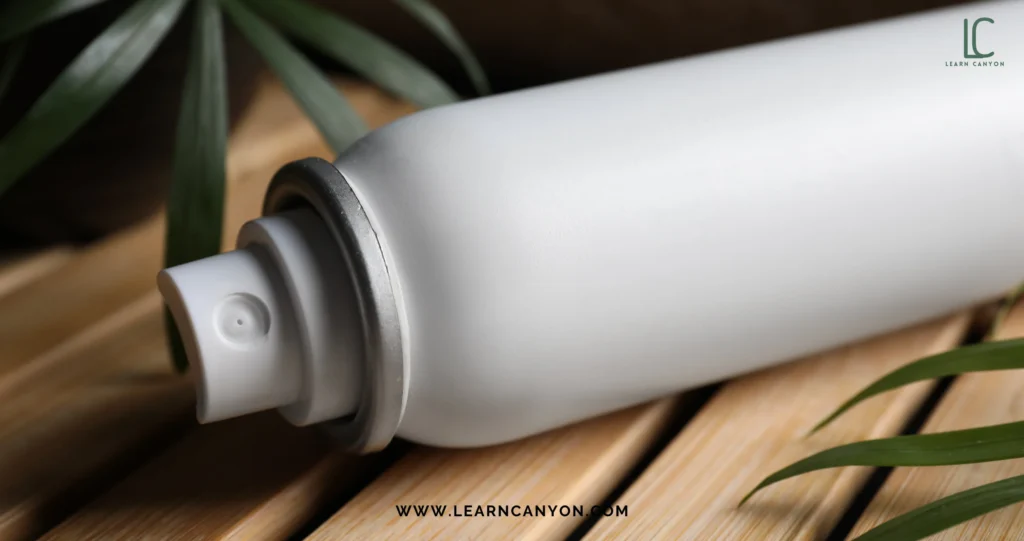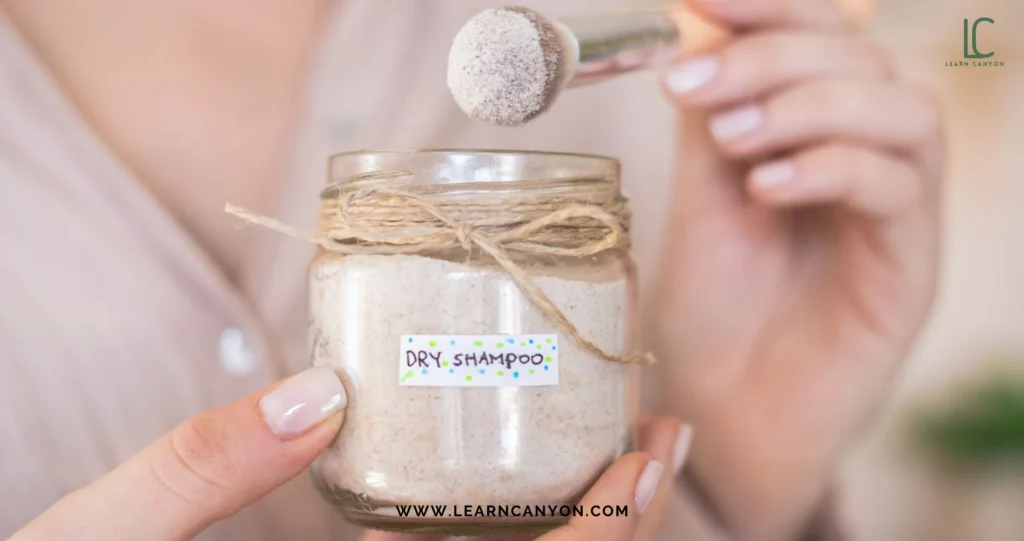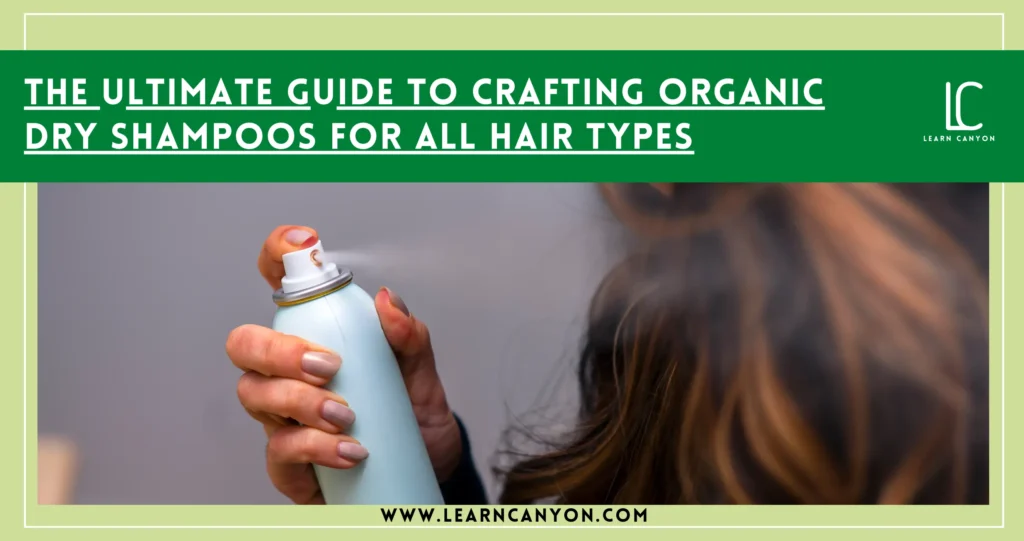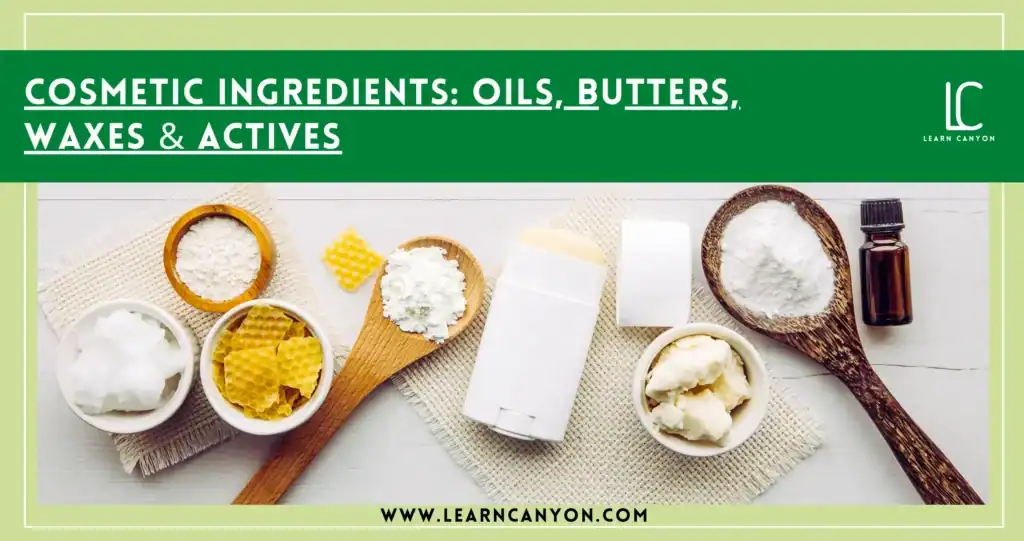Do you agree? we all have those days when washing our hair just isn’t an option. Maybe we’re short on time, preserving a hairstyle, or just want to skip stripping our hair’s natural oils. That’s where dry shampoo swoops in like a little miracle. But not just any dry shampoo, we’re talking about organic, scalp-friendly, hair-loving powders that refresh your locks without compromising on health or sustainability.
In this guide, we’re diving deep into the world of organic dry shampoo, not just how to make them, but how to customize them for different hair types. Because whether you’ve got curls that crave moisture, fine strands that need a volume boost, or an oily scalp that demands balance, there’s a dry shampoo blend that’s just right for you.
Ready to formulate? Let’s shake things up, naturally!
Understanding How Dry Shampoo Works
Before we start mixing powders and picking ingredients, let’s get to the root of things, how exactly does dry shampoo work?
At its core, dry shampoo is all about absorbing excess oil (aka sebum) from your scalp and hair, the stuff that makes your hair look greasy, limp, or weighed down. When you apply a dry shampoo, the fine, oil-absorbing powders cling to that sebum, soak it up, and give your roots a refreshed, cleaner appearance, without a single drop of water.
But as a formulator, I’m not just thinking about oil absorption. I’m also thinking about scalp health, hair texture, hair color, and ease of application. That’s why organic dry shampoos are such a treat, we get to choose from a variety of plant-based powders, clays, and botanicals that not only cleanse but also nourish the scalp gently.
And guess what? The way dry shampoo performs can vary depending on the form you choose:
- Loose powders: Simple, effective, and easy to make, just sprinkle and blend.
- Pressed or compact powders: Great for travel and touch-ups.
- Aerosol-free spray powders: These can be made with a starch and alcohol base for a spritz-style application.
- Foam-to-powder dry shampoos: A bit more advanced, but super innovative for those who want that “wet-then-dry” feel without a full wash.
Each form has its own charm, but at the heart of it all is one simple function: soaking up oil while leaving your hair feeling light and revived.
Now that you know what’s happening behind the scenes, let’s move on to selecting the perfect base ingredients to build your formula from the ground up!
Choosing the Right Base Ingredients
Alright, now we’re getting into the fun part, building the base of your dry shampoo. Think of this as your canvas. The powders you choose here will not only absorb excess oil but also influence the texture, feel, and even the appearance of your final product.
As a formulator, I always ask:
What’s the hair type I’m targeting?
What scalp needs should I consider?
And how can I make the experience of using this product feel luxurious yet clean?

Let’s walk through some of my favorite natural, skin-safe base ingredients:
Arrowroot Powder
A superstar in dry shampoo formulations! It’s light, silky, and absorbs oil without leaving your hair feeling chalky. Great for all hair types, especially sensitive scalps.
Rice Starch
Slightly more absorbent than arrowroot and adds a touch of volume. Works beautifully for oily and fine hair types that need that extra lift at the roots.
Cornstarch
A kitchen staple that’s often used in DIYs, but it can feel heavy or cakey on certain hair types. I personally prefer using it in blends, not alone.
Kaolin Clay
This gentle clay is ideal for dry or irritated scalps. It offers oil absorption without over-drying, perfect for curly, coily, or color-treated hair.
Bentonite Clay
If you’re formulating for very oily scalps, bentonite is your go-to. It’s a bit heavier and detoxifying, so use it in moderation unless your formula really calls for a deep refresh.
Cocoa Powder
Not just for dessert! Cocoa is a beautiful natural tint for brunettes. It blends into darker hair easily and gives your dry shampoo a warm, earthy scent. Choose unsweetened, food-grade, of course!
Activated Charcoal
This one’s best in tiny doses, powerful at drawing out impurities and great for oily scalps, but too much can leave a grey cast. Mix with lighter powders to balance it out.
Pro tip from the lab: I like blending 2–3 absorbents for a more balanced formula. For example, arrowroot + kaolin + a touch of cocoa = dreamy for brunettes with dry scalps.
Also, always consider the color of your powder blend, especially if you’re formulating for darker hair. Nobody wants a ghostly white cast at the roots! That’s where color-adaptive ingredients come in.
Customizing for Different Hair Types
Formulating isn’t one-size-fits-all, and neither is dry shampoo! Every scalp has its own rhythm, and every strand tells a different story. That’s why I love customizing formulations. It allows us to go beyond “just absorbing oil” and actually support the hair’s unique needs.
Let’s break it down by hair type so you can confidently tweak your formula like a true pro.
For Oily Hair & Scalp
This hair type needs serious oil absorption, but we don’t want to be overly stripping.
Go-to absorbents:
- Rice starch
- Bentonite clay (use moderately!)
- Arrowroot + a pinch of activated charcoal
Add-ins:
- Tea tree or rosemary powder for their purifying and sebum-balancing properties
- Optional: A tiny drop of tea tree or peppermint essential oil (within dermal limits, of course!)
Tip: Avoid overly conditioning ingredients, keep it fresh, matte, and airy.
For Dry or Damaged Hair
Here, we need gentle absorbency and a touch of nourishment.
Go-to absorbents:
- Kaolin clay
- Arrowroot powder
Add-ins:
- Aloe vera powder or calendula powder for soothing dry scalps
- A dusting of hibiscus powder (adds a beautiful color for dark hair too!)
Tip: You can even incorporate a small amount of panthenol (vitamin B5) powder for added scalp comfort.
For Curly or Coily Hair
Curly hair thrives on moisture, so dry shampoo needs to be extra gentle and non-disruptive to curl patterns.
Go-to absorbents:
- Arrowroot + kaolin combo
- Avoid bentonite unless the scalp is very oily
Add-ins:
- Marshmallow root powder for soothing the scalp and adding a soft texture
- Hibiscus or shikakai for extra hair-loving goodness
Tip: Apply in sections and fluff with fingers to keep your curls defined, not dusty!
For Color-Treated Hair
This is where we tread carefully, we want oil control, not color fade!
Go-to absorbents:
- Kaolin clay
- Arrowroot powder
Color-matching add-ins:
- Cocoa powder for brunettes
- Activated charcoal (just a pinch) for black or very dark hair
- Chamomile or calendula powder for blondes or light tones
Tip: Always go for the gentlest blend, think of it as skincare for your scalp.
For Fine or Limp Hair
Fine strands love volume but hate buildup, so dry shampoo can be a total game-changer.
Go-to absorbents:
- Rice starch (lightweight + volumizing)
- Arrowroot powder
Add-ins:
- Oat flour or silica microspheres for a weightless lift
- A little peppermint or rosemary powder to energize the scalp
Tip: Less is more, overloading fine hair can weigh it down. A quick sprinkle, brush, and you’re good to go!
Formulator’s Note:
Customizing means listening, not just to what your ingredients can do, but to what your customer (or your own hair!) is asking for. It’s where the art meets the science.

Natural Fragrance & Botanicals
Now that you’ve built a functional base and tailored it for different hair types, let’s sprinkle in some soul, because what’s a dry shampoo without that fresh, clean scent that makes you feel just as good as you look?
In organic formulation, we don’t lean on synthetic perfumes or overpowering fragrances. Instead, we celebrate the art of scenting with essential oils and botanicals, gentle, aromatic, and full of skin-loving benefits.
Let’s walk through how to make your dry shampoo not just functional, but a sensory experience.
Essential Oils, Less is More
Essential oils can do more than smell divine, they often bring antimicrobial, calming, or energizing properties to your formula. But remember, we’re working with dry powders and the dermal limits still apply, especially since this is a leave-on product.
Here are a few safe and scalp-friendly options:
- Lavender – Calming, balancing, and gentle for all scalp types
- Peppermint – Cooling and refreshing; helps wake up an oily scalp
- Rosemary – Clarifying and stimulating; pairs well with hair growth support blends
- Geranium – Floral and balancing, beautiful in blends for dry or mature scalps
- Tea Tree – Antibacterial and clarifying, great for oily or flaky scalps (but use sparingly!)
Formulator tip: Always blend essential oils into a small amount of carrier powder first (like arrowroot) before mixing them into the full batch. This helps avoid clumping and ensures even distribution.

Botanical Powders with Benefits
Botanicals are where I love to play! They bring color, scent, and added function to the formula.
Here are some gentle, scalp-loving powders to consider:
- Aloe Vera Powder – Soothes irritated or dry scalps
- Marshmallow Root Powder – Adds softness and reduces static
- Hibiscus Powder – Rich in antioxidants, gives a pinkish hue and supports scalp health
- Chamomile Powder – Perfect for light hair tones and calming to sensitive scalps
- Neem or Tulsi Powder – For oily or problematic scalps (use in small quantities)
Bonus: These botanicals don’t just support scalp wellness, they add a beautiful visual appeal to your formula too, especially when displayed in transparent packaging.
Natural Fragrance Oils (Optional)
If you’re looking for a longer-lasting scent without going synthetic, some formulators opt for IFRA-compliant natural fragrance oils derived from essential oil isolates. These can give your formula a more “perfume-like” quality without compromising your clean beauty promise.
But be sure to source from reputable suppliers and keep usage within safe leave-on limits.
Personal Blend Inspiration:
For a dry shampoo that feels like a walk through a summer garden:
- Arrowroot + Kaolin + Cocoa Powder + Marshmallow Root
- Scented with Lavender, Geranium & a kiss of Rosemary.
- Delicate. Calming. Refreshing. Pure magic.
Packaging & Application Tips
You’ve just crafted a dreamy, custom organic dry shampoo, now let’s talk about how to package it beautifully and use it effectively. Because even the most brilliant formula can lose its charm if the packaging isn’t user-friendly or the application feels messy.
As a formulator, I always ask:
How will the end user experience this product?
Is it intuitive? Travel-friendly? A joy to use?
Let’s break it down
Choosing the Right Packaging
There are a few great options depending on your vibe, minimalist, luxe, or fun and functional:
Shaker Bottles
- Think of salt or spice jars (with sifter caps).
- Great for loose powder blends.
- Easy to use at home, especially when applying directly to roots.
Wide-Mouth Jars
- Perfect for a fluff-and-brush method (using a big makeup brush).
- Works well if your blend has delicate botanical powders you want to show off.
- Looks gorgeous on a bathroom shelf!
Powder Spray Bottles (Aerosol-Free)
- Gives that puff of powder without the need for propellants.
- More convenient and less messy for on-the-go use.
- A bit pricier, but oh-so-worth-it for a premium feel.
Paper Tubes or Compostable Containers
- If you’re leaning into a zero-waste, eco-conscious aesthetic.
- Just be sure the container is moisture-resistant.
Formulator Tip: Always include a “shake before use” label if you’re using essential oils or botanicals that may settle!
Application Tips for Best Results
Now for the part your customers will love, how to use it for that clean, fresh, just-washed look (minus the water)!
1. Apply to Dry Hair Only:
Wet hair + dry shampoo = clumps. Wait until your hair is completely dry.
2. Target the Roots:
Part your hair in sections and either sprinkle or spray the dry shampoo onto oily areas, typically around the hairline, crown, and parting.
3. Wait a Minute or Two:
Let the powders absorb the oil, this is key! Use this time to do your skincare or grab a coffee.
4. Blend it In:
Use your fingertips, a brush, or a towel to massage the powder in. For fine hair, a boar bristle brush works wonders. For curls, gently fluff with fingers to avoid breaking the pattern.
5. Don’t Overdo It:
A little goes a long way, especially on fine or dark hair. You can always add more, but too much can look chalky.
Pro Tip: If your customer has darker hair and is worried about powdery residue, include a little card or label with these words:
“Apply at night and let the magic happen while you sleep. Wake up to fresh, voluminous hair without a trace!”
Preserving & Shelf Life
Now, since we’re working with a dry, anhydrous formula, you might be thinking, “Do I even need a preservative?”
Great question, and here’s the honest, formulator-approved answer: not always, but you still need to be smart about it.
Dry shampoos don’t contain water, which means they’re generally less prone to microbial growth, yay! But that doesn’t give us a free pass to forget about shelf life and safety. Let’s break it down.
When You Don’t Need a Preservative
If your formula is:
- 100% dry (no hydrosols, aloe juice, or anything water-based)
- Stored in an airtight, moisture-resistant container
- Used with dry hands or via shaker/spray bottle (so no fingers in the jar!)
Then you’re good to go without a preservative.
But You Still Need to Protect the Formula
Even waterless powders can spoil if exposed to moisture, steam, or dirty fingers.
Here’s how to keep your beautiful blend safe:
- Always use clean, dry utensils when transferring or testing
- Store in a cool, dry place, away from the steamy bathroom shelf if possible
- Include a note like: “Keep container dry. Do not use with wet hands.” on the label
- Optional: Add a natural antioxidant like Vitamin E (Tocopherol) if you’ve included powdered botanicals that are rich in oils, this helps prevent oxidation
Estimated Shelf Life
With proper storage, your dry shampoo should be shelf-stable for 6 to 12 months.
However, always recommend your customers do a sensory check (look, smell, texture) after 6 months, especially if you’ve added botanicals or essential oils.
Batch & Date Labeling
As a professional formulator, I always advise noting:
- Date of manufacture
- Batch number (for traceability)
- Recommended “Best Used By” date
This isn’t just best practice, it builds trust with your customers and shows you truly care about quality.
Peace-of-Mind Tip:
If you’re selling or gifting your dry shampoo, include a cute little care card that explains how to store and apply it. It’s a small touch, but it shows you’re thoughtful and professional, and it elevates the entire experience.
Sample Formulation Recipes
Let’s roll up those sleeves, because now it’s time to bring everything together! Below are five sample dry shampoo formulations, each one crafted with care for a specific hair type. These are great starting points, and as I always say: once you understand the why, you can tweak the what.
These formulas are beginner-friendly, but still rooted in solid formulation logic, and they’re 100% customizable as you grow in confidence.
For Oily Hair & Scalp
Deeply absorbent and clarifying without over-stripping.
Ingredients:
- Rice starch – 45%
- Bentonite clay – 25%
- Arrowroot powder – 20%
- Activated charcoal – 2%
- Neem powder – 5%
- Tea tree essential oil – 0.5%
- Rosemary essential oil – 0.5%
- (Optional: 2% silica microspheres for extra oil control and smooth texture)
For Dry or Damaged Hair
Gentle on the scalp and rich in soothing botanicals.
Ingredients:
- Arrowroot powder – 52%
- Kaolin clay – 20%
- Aloe vera powder – 10.5%
- Calendula powder – 10%
- Marshmallow root powder – 5%
- Lavender essential oil – 1%
- Geranium essential oil – 0.7%
- Vitamin E (Tocopherol) – 0.8%
For Curly or Coily Hair
Softens and refreshes without disrupting curl patterns.
Ingredients:
- Arrowroot powder – 45%
- Kaolin clay – 20%
- Hibiscus powder – 12%
- Marshmallow root powder – 10%
- Oat flour – 10%
- Peppermint essential oil – 0.5%
- Lavender essential oil – 0.5%
- (Optional: Add 1–2% Inulin as a scalp prebiotic)
For Color-Treated Hair
Non-stripping, shade-matching and protective.
For Brunettes:
- Arrowroot powder – 35%
- Kaolin clay – 20%
- Cocoa powder – 30%
- Aloe vera powder – 10%
- Rose powder – 3%
- Geranium essential oil – 1%
- Vitamin E – 1%
For Blondes:
- Arrowroot powder – 52%
- Kaolin clay – 25%
- Chamomile powder – 16%
- Calendula powder – 5%
- Lavender essential oil – 1%
- Lemon essential oil (steam distilled) – 0.5%
- Tocopherol – 0.5%
For Fine or Limp Hair
Lightweight, volumizing, and oil-controlling.
Ingredients:
- Rice starch – 42%
- Arrowroot powder – 30%
- Oat flour – 10%
- Silica microspheres – 10%
- White kaolin clay – 5%
- Peppermint essential oil – 0.5%
- Rosemary essential oil – 0.5%
- (Optional: 1–2% panthenol for scalp comfort)
Tips for Customization:
- Always sift powders before blending for a smooth, airy texture.
- Blend essential oils into a small amount of your powder base first, then add to the full batch.
- Always label, batch, and store with intention, your work deserves it!
And just like that, you’ve journeyed through the art and science of formulating organic dry shampoos! Whether you’re creating for yourself, your clients, or your brand, I hope this guide has shown you that dry shampoo isn’t just a powder you throw together… it’s a carefully crafted solution tailored to real hair needs.
As a formulator, there’s something so satisfying about blending clean, effective ingredients and watching your product go from idea to reality, especially when it works beautifully and smells divine.
Here’s what I want you to remember:
- Keep it simple at first. You don’t need 15 ingredients to make a powerful formula.
- Customize with purpose. Think about hair type, scalp needs, and lifestyle.
- Always test your formulas. Patch test, performance test, and tweak as needed.
- Enjoy the process. Formulation is part science, part intuition, and a whole lot of love.
And if you’re feeling inspired to dive deeper into natural haircare, don’t be shy! Explore ingredient profiles, experiment with different blends, and most importantly, trust your formulator instincts.
You’ve got this.
Sending you loads of powdery magic and formulation joy,











